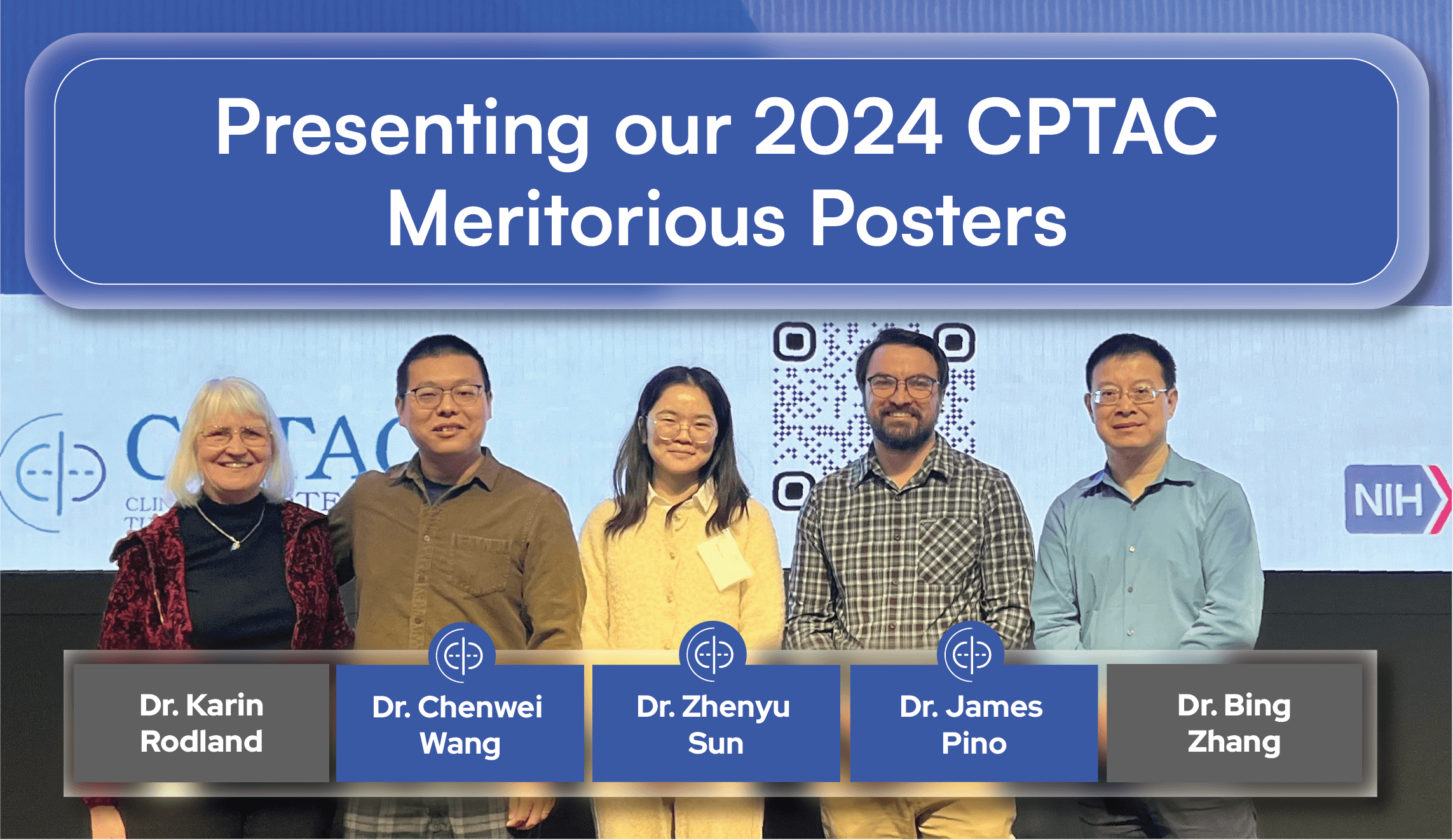The Clinical Proteomic Tumor Analysis Consortium (CPTAC) recently held its Scientific Investigator Meeting in Portland, Oregon at the Oregon Health & Science University campus. The meeting featured key scientific and programmatic updates spanning multiple cancer types presented by consortium research investigators. The event also included a poster showcase, and at the end of the event three meritorious posters were selected by Dr. Karin Rodland (Oregon Health & Science University), Dr. Bing Zhang (Baylor College of Medicine), and Dr. Michael Gillette (Broad Institute of MIT and Harvard) for their clarity, logical presentation, and meaningful impact on the program and/or the field. Find the poster titles and an overview provided each by the awardees below.

|
Poster Title: DeepVEP: predict effects of variants on post-translational modifications with deep learning |
|
Overview: Provided by Dr. Chenwei Wang, Baylor College of Medicine DeepVEP is a deep learning-based predictor designed for both general PTM sites and the impact of missense variants on PTM sites. Our goal is to enhance the understanding of the molecular mechanisms underlying diseases and biological processes by enabling accurate predictions of how missense variants affect PTMs. |
|
Poster Title: Glycopeptide enrichment and mass spectrometric methods for quantitative glycoproteomic analysis of different glycoforms |
|
Overview: Provided by Dr. Zhenyu Sun, Johns Hopkins University Our glycoproteomic study highlights the critical roles of HCD collision energy, enrichment strategies, and quantitation approaches in the characterization of intact N-glycopeptides. By integrating HILIC enrichment, TMTpro labeling, and optimized mass spectrometry method, we significantly enhanced the identification and quantification of intact N-glycopeptides, providing insights into glycan distribution and ensuring high reproducibility and accuracy in quantification. |
|
Poster Title: Proteomic characterization of decitabine drug resistance in acute myeloid leukemia reveals signaling cross-talk that dampens the effectiveness of combination therapy |
|
Overview: Provided by Dr. James Pino, Pacific Northwest National Laboratory In this work, we characterize a resistant population of cancer cells after exposure to a triple combination of drugs that are currently in clinical trials. Based on proteomics measurements, we find that one drug might attenuate the effects of the other two drugs, predicting and possibly explaining the lack of effectiveness of the triple combination. This work shows how we can utilize proteomic state changes following perturbation to aide in better guiding drug combinations for therapeutic interventions. |

